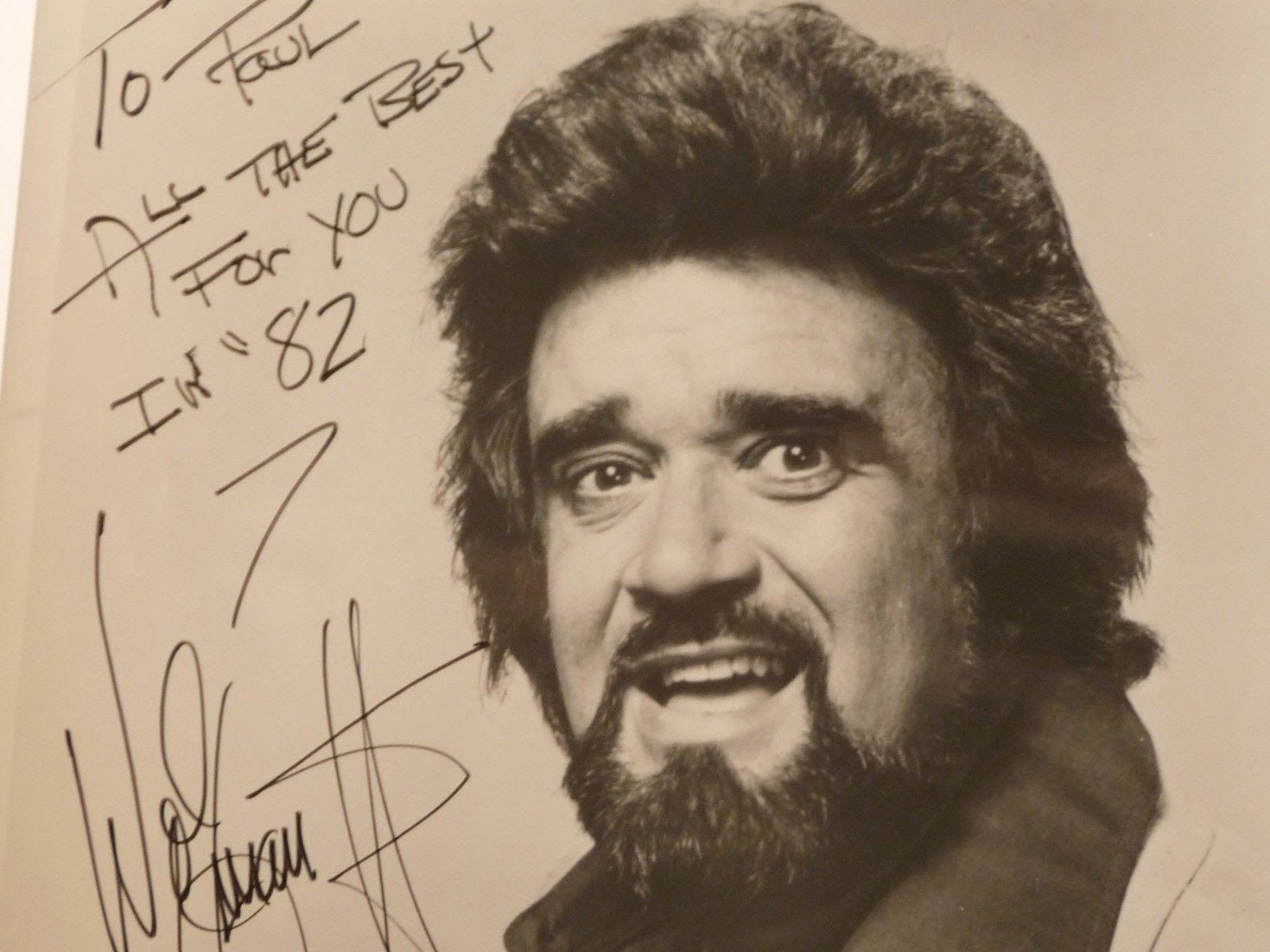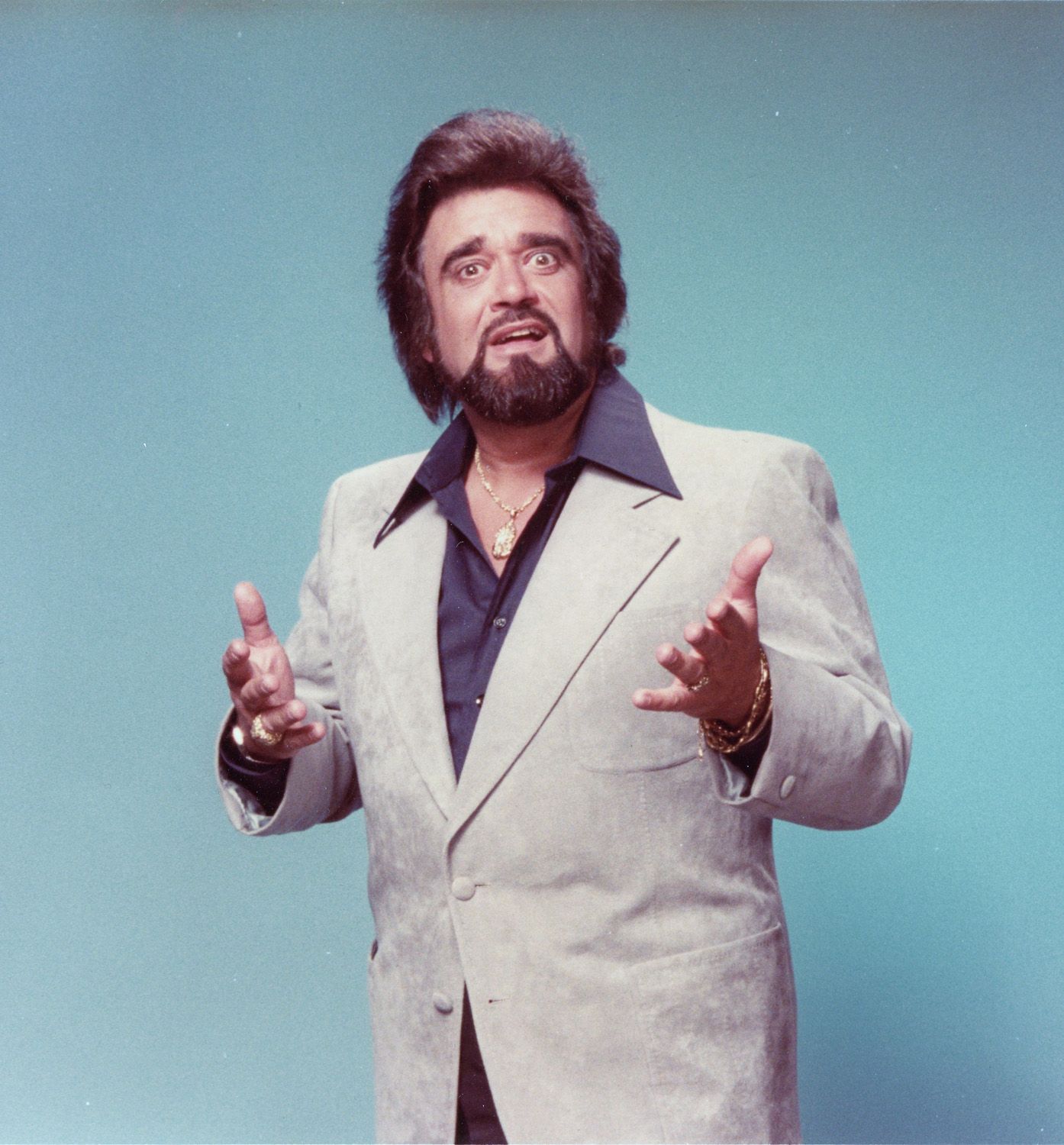The Unforgettable Howl: Tracing The Legacy Of Wolfman Jack
In the annals of American radio, few voices resonate with the raw, untamed energy and iconic charm quite like that of Wolfman Jack. His gravelly voice, punctuated by signature howls, wasn't just a sound; it was a phenomenon that transcended the airwaves, embedding itself deeply into the cultural fabric of the 1960s and beyond. From the moment Bob Smith brought the persona of Wolfman Jack to life on XERF, a legend was born, captivating millions with a personality that sent palpable energy through radio speakers across the nation.
Wolfman Jack wasn't merely a disc jockey; he was a revolutionary figure who played a pivotal role in popularizing rock 'n' roll music during a transformative era. His unique broadcasting style, a blend of charismatic patter, soulful music, and unforgettable vocalizations, made him one of the most recognizable personalities in the country. This article delves into the remarkable life and enduring legacy of the man born Robert Smith, exploring his journey from a Brooklyn enthusiast to a global cultural icon, and the profound impact he left on entertainment.
Table of Contents
- The Man Behind the Microphone: A Biography of Wolfman Jack
- Wolfman Jack: A Cultural Icon of Rock 'n' Roll
- Beyond the Airwaves: Wolfman Jack's Ventures in Film and Television
- The Unique Appeal and Enduring Influence of Wolfman Jack
- The Legacy of Wolfman Jack in Modern Media
- Personal Data: A Glimpse into Robert Smith's Life
- Frequently Asked Questions About Wolfman Jack
The Man Behind the Microphone: A Biography of Wolfman Jack
To truly appreciate the phenomenon that was Wolfman Jack, one must first understand the man behind the growl, the howl, and the captivating persona. Born Robert Smith on January 21, 1938, in Brooklyn, New York City, New York, USA, his journey to becoming one of radio's most distinctive voices was anything but conventional. His early life in Brooklyn laid the groundwork for a career that would defy expectations and carve out a unique niche in entertainment history. Robert Smith was a longtime fan of radio, a medium that would eventually become his stage, his canvas, and his legacy. This early fascination with the airwaves undoubtedly fueled his ambition and shaped the trajectory of his extraordinary career.
Early Life and the Birth of a Legend
Robert Smith’s passion for radio began long before he ever uttered a single howl on air. He was captivated by the magic of voices emanating from speakers, painting vivid pictures in the minds of listeners. This profound admiration for the medium led him to pursue a career that would allow him to connect with audiences on a grand scale. The genesis of the Wolfman Jack character is steeped in legend, particularly his early days on XERF, a powerful border blaster radio station located in Ciudad Acuña, Coahuila, Mexico, just across the border from Del Rio, Texas. It was on XERF that "Bob Smith got Wolfman Jack on XERF… and the legend was born." This high-powered station, known for its ability to reach vast audiences across North America, provided the perfect platform for a personality as outsized as Wolfman Jack. Operating with minimal FCC regulations, XERF allowed for a raw, unfiltered broadcasting style that perfectly suited the burgeoning Wolfman persona. It was here that the gravelly voice and the distinctive wolf howls first began to truly captivate listeners, laying the foundation for a career that would span decades and influence countless aspiring broadcasters. The freedom of the border radio environment allowed Robert Smith to experiment and refine the character, transforming himself into the iconic figure that would soon become a household name.
The Voice That Defined an Era
The defining characteristic of Wolfman Jack was, without a doubt, his voice. It was famously gravelly, deep, and utterly unique, instantly recognizable to millions. He himself credited this distinctive vocal quality for his immense success, famously saying, "it’s kept meat." This simple yet profound statement encapsulates the power of his vocal instrument. It wasn't just a voice; it was an identity, a brand, and a direct line to the souls of his listeners. While often described as gravelly, his voice also possessed a strange, almost "soothing gravelly voice" quality, a paradoxical charm that drew listeners in. This combination of roughness and allure made his broadcasts incredibly compelling. Beyond the speaking, his trademark wolf howls became an inseparable part of his on-air persona, a primal cry that echoed through radios and cemented his image as the wild, untamed spirit of rock 'n' roll. This vocal artistry was central to his ability to "send energy through the radio speakers and attract the attention of millions of people all across" the country. His voice wasn't just for delivering song titles; it was an instrument of entertainment, a character in itself, capable of conveying excitement, intimacy, and a rebellious spirit that resonated deeply with a generation hungry for change and authentic expression. The very sound of his voice became synonymous with the raw, untamed spirit of rock and roll, making him an indispensable figure in its popularization.
Wolfman Jack: A Cultural Icon of Rock 'n' Roll
Wolfman Jack was more than just a disc jockey; he was a cultural phenomenon, an integral part of the rock 'n' roll revolution that swept across America in the 1960s. With his trademark gravelly voice and howl, he became a cultural icon over the airwaves, shaping the musical tastes of a generation. His broadcasts were not merely about playing records; they were a vibrant, energetic experience that transported listeners into the heart of the rock 'n' roll scene. He had an uncanny ability to infuse every moment on air with an infectious enthusiasm, making listeners feel like they were part of something truly special and rebellious. This dynamic personality was crucial in "popularizing rock music" at a time when it was still considered by many to be a fringe genre. He championed artists who were pushing boundaries, introducing their sounds to a mass audience hungry for something new and exciting. His influence extended far beyond just playing songs; he curated a soundscape that defined an era, making rock 'n' roll accessible and thrilling to millions who might not have otherwise encountered it. The energy he projected through the radio speakers was so potent that it "attracted the attention of millions of people all across" the country, solidifying his status as a true pioneer in music broadcasting. His unique approach broke down barriers, connecting diverse audiences through the universal language of rock and roll, cementing his legacy as a true architect of its widespread appeal.
- The Hoxton Downtown La
- Donald Trumps Family Circle Will Look Different This Time
- Lowes Maui
- Arturo Merino Benitez International Airport
- Publican Quality Meats
Beyond the Airwaves: Wolfman Jack's Ventures in Film and Television
While Wolfman Jack's fame was undeniably built on his radio persona, his charisma and distinctive presence were too potent to be confined solely to the airwaves. He successfully transitioned into acting, bringing his unique brand of energy to the big screen and television, proving that "there is much more to the man's career than his speaking." His most notable film appearance was in George Lucas's iconic 1973 film, American Graffiti. In the movie, he played himself, a mysterious, all-knowing DJ whose voice guides the young protagonists through a pivotal night in their lives. His role was crucial to the film's nostalgic atmosphere and its portrayal of the era's youth culture, demonstrating his profound connection to the very essence of 1960s America. His presence in American Graffiti not only cemented his status as a cultural touchstone but also introduced him to a new generation of fans who might not have been familiar with his radio work. Beyond American Graffiti, he also appeared in other productions, including the 1978 film Sgt. Pepper's Lonely Hearts Club Band, showcasing his versatility as an entertainer. These ventures into film and television allowed Wolfman Jack to expand his reach, transforming him from a voice on the radio into a recognizable face and a multifaceted performer. His ability to translate his captivating radio personality into visual media further solidified his iconic status, proving that his appeal was not limited to sound alone. He was a natural performer, capable of captivating audiences whether they were listening to his voice or watching him on screen.
The Unique Appeal and Enduring Influence of Wolfman Jack
The enduring appeal of Wolfman Jack stemmed from a combination of factors that made him truly unique in the broadcasting landscape. His authenticity was paramount; he wasn't just playing a character, he embodied the spirit of rock 'n' roll. His broadcasts were spontaneous, unpredictable, and always full of life. This raw, unpolished approach resonated deeply with listeners who were tired of the more buttoned-up, conventional radio personalities. He connected with his audience on a visceral level, making them feel like they were part of an exclusive club, privy to something exciting and slightly illicit. His distinctive gravelly voice, which he himself credited for his success, was a key element of this connection. It was a voice that commanded attention, yet also felt intimate and friendly. The iconic wolf howls were more than just a gimmick; they were an expression of his wild, untamed spirit, a call to freedom that echoed the rebellious nature of the music he played. Wolfman Jack's influence extended beyond simply playing records; he was a tastemaker, a cultural barometer, and a symbol of an era defined by change and liberation. He inspired countless aspiring DJs and entertainers, demonstrating that personality and passion could transcend traditional broadcasting norms. His legacy is not just in the music he played, but in the way he played it, infusing every moment with an energy that was truly his own. He proved that radio could be a powerful force for cultural change, shaping tastes and fostering a sense of community among listeners.
The Legacy of Wolfman Jack in Modern Media
Even decades after his passing, the legacy of Wolfman Jack continues to reverberate throughout modern media and popular culture. His distinctive voice and persona have been referenced, sampled, and paid homage to in countless forms, from music to film and television. Artists across various genres have drawn inspiration from his unique style, recognizing his profound impact on the landscape of popular entertainment. His gravelly voice, in particular, has become synonymous with a certain era of rebellious radio, influencing subsequent generations of broadcasters who sought to emulate his raw energy and captivating presence. The archetype of the charismatic, slightly wild DJ, which Wolfman Jack perfected, remains a powerful image in media. His appearances in films like American Graffiti have ensured his enduring visibility, introducing his iconic character to new audiences who may not have experienced his original radio broadcasts. This cinematic presence has helped to immortalize him as a symbol of 1960s youth culture and the golden age of rock 'n' roll radio. Furthermore, his influence can be seen in the very structure of modern radio programming, where personality-driven shows often take precedence, a testament to the groundwork laid by pioneers like Wolfman Jack. He proved that the DJ could be as much of a star as the musicians they played, fostering a more intimate and engaging relationship with listeners. His impact extends beyond mere nostalgia; it's a testament to the power of a unique voice and an unforgettable personality to leave an indelible mark on the collective consciousness. The spirit of Wolfman Jack, the untamed voice of rock 'n' roll, continues to howl through the corridors of entertainment history.
Personal Data: A Glimpse into Robert Smith's Life
While the persona of Wolfman Jack was larger than life, the man behind it, Robert Smith, led a life that was both fascinating and impactful. Here’s a brief overview of his personal data:
| Attribute | Detail |
|---|---|
| Full Name | Robert Weston Smith |
| Stage Name | Wolfman Jack |
| Date of Birth | January 21, 1938 |
| Place of Birth | Brooklyn, New York City, New York, USA |
| Date of Death | July 1, 1995 |
| Cause of Death | Heart Attack |
| Occupation | Disc Jockey, Actor |
| Known For | Gravelly voice, wolf howls, popularizing rock 'n' roll, American Graffiti |
The Final Broadcast: Wolfman Jack's Passing
The world lost one of its most distinctive voices when Wolfman Jack, the rock 'n' roll disc jockey whose gravelly voice and wolf howls made him one of the nation's most recognizable personalities, died on Saturday, July 1, 1995, of a heart attack. His passing marked the end of an era for many who had grown up listening to his broadcasts. Despite his larger-than-life persona, Robert Smith was a human being with a finite lifespan, and his death at the age of 57 came as a shock to his millions of fans worldwide. His final days were reportedly spent in relative peace, having just completed a promotional tour for his autobiography. The news of his heart attack brought a somber close to a career that had always been about vibrancy, energy, and pushing boundaries. His death prompted an outpouring of tributes from fellow broadcasters, musicians, and fans, all acknowledging the immense void left by his absence. While his physical presence may have departed, the echoes of his unforgettable voice and the spirit of his revolutionary approach to radio continue to resonate, ensuring that the legend of Wolfman Jack will live on for generations to come. His impact on radio and popular culture was so profound that his passing was truly felt as the end of a unique chapter in broadcasting history.
Frequently Asked Questions About Wolfman Jack
Wolfman Jack remains a subject of fascination for many, especially those interested in the history of radio and rock 'n' roll. Here are some common questions about this iconic figure:
What made Wolfman Jack so famous?
Wolfman Jack became famous primarily for his incredibly distinctive and gravelly voice, coupled with his signature wolf howls. His energetic and charismatic personality, which "sent energy through the radio speakers," allowed him to connect with millions of listeners. He was integral in popularizing rock music during the 1960s, creating a unique on-air persona that was both rebellious and entertaining. His appearances in popular films like American Graffiti further cemented his status as a cultural icon, extending his fame beyond the radio waves.
What was Wolfman Jack's real name?
Wolfman Jack was born Robert Weston Smith. He adopted the "Wolfman Jack" persona early in his career, and it became so synonymous with him that many people did not know his birth name. His stage name was carefully crafted to evoke a sense of wildness and mystery, perfectly complementing the rock 'n' roll music he championed.
What movies did Wolfman Jack appear in?
Wolfman Jack was an actor known for several film appearances. His most famous role was playing himself in George Lucas's 1973 classic, American Graffiti, where his voice and presence were central to the film's atmosphere. He also appeared in Sgt. Pepper's Lonely Hearts Club Band (1978) and other productions, showcasing his versatility beyond his radio career.
How did Wolfman Jack influence music?
Wolfman Jack was "integral in popularizing rock music" during the 1960s. Operating from powerful border blaster stations like XERF, he introduced rock 'n' roll to vast audiences across North America, often playing music that mainstream stations shied away from. His passionate advocacy for the genre, combined with his electrifying on-air personality, helped to legitimize rock 'n' roll and turn it into a dominant force in popular culture. He gave a platform to countless artists and helped shape the musical tastes of a generation.
Conclusion
The legend of Wolfman Jack is a testament to the power of a singular voice and an unforgettable personality. From his humble beginnings as Robert Smith in Brooklyn to his reign as a rock 'n' roll cultural icon, he left an indelible mark on radio, music, and popular culture. His gravelly voice and signature howls weren't just sounds; they were a rallying cry for a generation, a symbol of freedom, and a conduit for the raw energy of rock 'n' roll. He proved that a disc jockey could be as influential as the artists they played, shaping tastes and connecting with millions on a deeply personal level.
Wolfman Jack's legacy continues to echo through the airwaves and beyond, a reminder of a golden era of broadcasting where personality reigned supreme. His story is a powerful illustration of how one individual, with enough passion and authenticity, can transcend their medium and become a timeless icon. We encourage you to delve deeper into the history of this remarkable entertainer. What are your favorite memories of Wolfman Jack? Share your thoughts and stories in the comments below, and explore other articles on our site to discover more legends of music and broadcasting.
- Fremont Sunday Market
- Kill Devil Grill
- The Royal Sonesta Chicago River North
- The Amazing Pizza Machine
- Baby John Full Movie

Pictures of Wolfman Jack

Pictures of Wolfman Jack

Pictures of Wolfman Jack